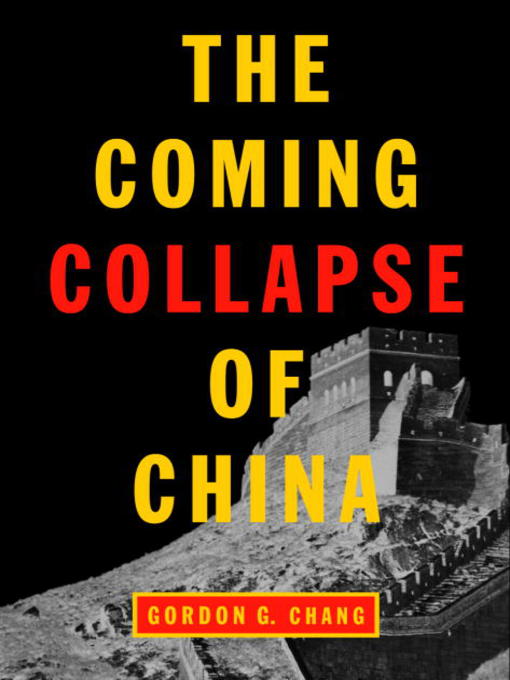
The Coming Collapse of China
کتاب های مرتبط
- اطلاعات
- نقد و بررسی
- دیدگاه کاربران
نقد و بررسی

July 2, 2001
Predicting the rapid fall of the Communist government, Chang, counsel to an American law firm in Shanghai and freelance journalist with the New York Times, the Asian Wall Street Journal
and elsewhere, attempts to support his prediction by discussing a number of phenomena in China: the volatile discontent of political minorities and the unemployed; the futility of state-owned enterprises and industrial policies; the vulnerability of the private sector and the WTO economy; the threats the Internet poses to party censorship; the dangers lurking behind the banking system; and the failing role of Marxist ideology. By maintaining power at all costs and suppressing dissent, the regime, Chang says, has jeopardized the economy and Chinese society at large. His adept business policy evaluation and socioeconomic criticism ("Party cadres... insist on commanding as if they still had a command economy") connect names and anecdotes with otherwise abstract social ills. But his success ends there, for his sweeping historical analyses and social forecasts falter. "Today the people no longer want Mao's revolution or the party that administers it. And so the People's Republic is going to fall, just like its predecessors," writes Chang, hastily recounting the quick endings of the Qing Dynasty and the Kuomintang. His invocations of the "power of the Chinese people," or of an imaginary individual who will one day "end the Chinese state as it now exists," read more like political soap opera than judicious analyses. Preoccupied with such rhetorical (and often highly cynical) flourishes, he fails to pay adequate attention to something that would have better supported his predictions: the imminent intra-Party power turnover in 2002. Chang needs more than denunciations and calls for change to support his bold prophetic claims.

August 1, 2001
The thesis of this provocatively titled but solidly argued book is simple and persuasive. Beneath the glitter of China's recent successes lies a deeply flawed economic system dominated by a sclerotic, fearful, and corrupt Communist elite. Bereft of solutions to the structural problems that plague China's economy and unwilling to loosen their grip on power, these men tinker with half-measures that are doomed to fail and increasingly resort to coercion to maintain their control. Chang, an American lawyer who lived and worked in China for almost 20 years, writes in an acerbic, almost sassy style and illustrates his points with numerous concrete examples from the past decade. The book is not merely a warning to anyone contemplating investment in China but an eye-opener to "Sino-optimists" in general. Chang's apocalyptic prediction of the Communist regime's collapse after a failed attempt to conquer Taiwan may not be the most likely of alternate scenarios, but it is at least plausible. Unfortunately, his hope that a liberal and democratic China will replace the current authoritarian regime seems less plausible. For all academic and larger public libraries. [Previewed in Prepub Alert, LJ 4/1/01.] Steven I. Levine. Univ. of Montana, Missoula
Copyright 2001 Library Journal, LLC Used with permission.

June 1, 2001
The government of China seems dyspeptic of late, and this glance at its domestic political diet illuminates some causes of its indigestion. Lawyer and occasional journalist Chang is well acquainted with the country's turbulent contemporary business and economic climate, as his choice of anecdotes confirms. Most of those are about the fortunes in China of one enterprise or another, such as bowling equipment maker AMF, and contribute to Chang's acidic regard for the Communist regime. The leaders in Beijing strike him as doctrinaire, divorced from reality, and bereft of purpose other than preserving their power. Chang chattily compiles the regime's besetting ills, such as chronic unemployment, obsolete state-run industries, and insolvent state banks. Toss in the Internet, Falun Gong, and "splittists" (separatists) in Tibet, Xinjiang, and Taiwan, and the regime indeed seems to be fighting just about everybody else in China. Joining the WTO seems to Chang likely to undo the Communists within five years. A lively survey that could earn the surveyor time in a Chinese jail.(Reprinted with permission of Booklist, copyright 2001, American Library Association.)

























دیدگاه کاربران